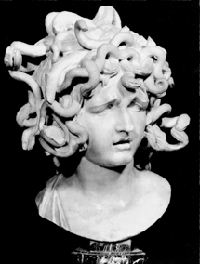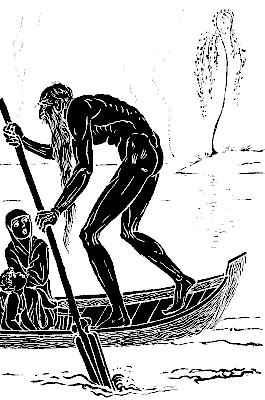|
|
|

It is no coincidence that the major gods and goddesses of the Roman pantheon were similar in character to Greek deities. Some of them were imported directly from the Greek world. Other native deities were gradually reinterpreted, as Rome's contacts with Greece grew, to become the equivalents of Particular Greek deities. Most of the narratives the Romans came to weave around their gods were borrowed from Greece, or were self-consciously invented following the Greek pattern.
Greek and Roman Gods ComparedAncient authors themselves recognized a difference between Greek and Roman deities. Varro (a Roman writer of the 1st century BC) pointed out that in the earliest days of the city , Roman gods and goddesses , unlike their Greek counterparts , had never been represented in human form. A Greek historian , Dionysius, writing at about the same time, stressed the moral superiority of Roman over Greek deities: Romulus , he wrote , had raised the moral profile of the gods because, in founding the city, he had rejected all the old myths about the gods' dishonourable exploits. |
|
Brother and sister and husband and wife. Ruling from Olympus. |
| Jupiter was god of the sky (weather and storm) and supreme god | Juno was consort of Jupiter - goddess of the marriage and women |
|
|
|
|
|
Son of Apollo, god of medicine and health |
|
|
|
The Lares were household gods worshipped in association with the Penates (gods of the storeroom, and hence the family's wealth). Most of the time they were souls of dead ancestors |
|
|
|
|
|
|
|
|
|
|
|
|
|
|
|
|
|
|


|
Goddess of the Underground World, daughter of Ceres |
|
|
|
Three terrible monsters who are symbolizing human fears | He is transporting dead across the river Styx |
![]()
![]()
